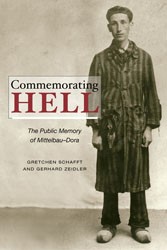We tend to look at the history of Jewish life in a linear way, ignoring or dismissing the influences and the stimulators from beyond the comfort zone of traditional Judaism. But we must ask ourselves: What were the outside factors that influenced what happened on the inside? How did the Shabbetai Tzvi and Emden-Eybeschutz controversies affect how we live our lives as Jews in the twenty-first century? How did the Get of Cleves controversy influence Jewish law going forward, so that rulings arrived at today are determined by this seemingly marginal episode? The uniting theme of Mavericks, Mystics & False Messiahs is the very individual personalities of these marginal characters and the impact they had during the time in which they lived. All the mavericks whose lives are explored in this book somehow represent in their individuality and their unique stories aspects of the broader narrative of their eras. What they prove, in all their fascinating oddity, is how aspects of Jewish history which occur outside of the spotlight have a residual effect on what is happening in today’s world.
Join a community of readers who are committed to Jewish stories
Sign up for JBC’s Nu Reads, a curated selection of Jewish books delivered straight to your door!





